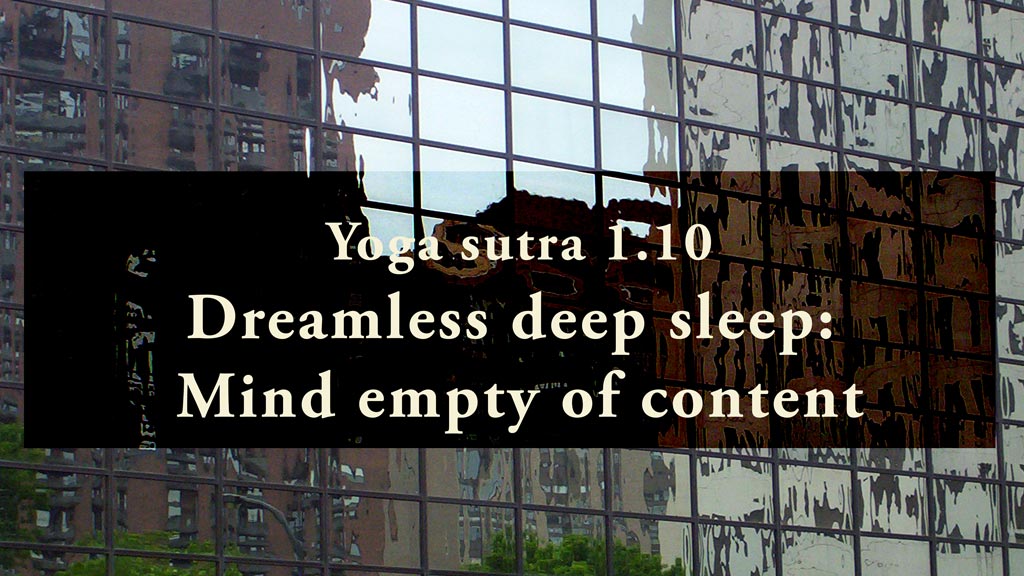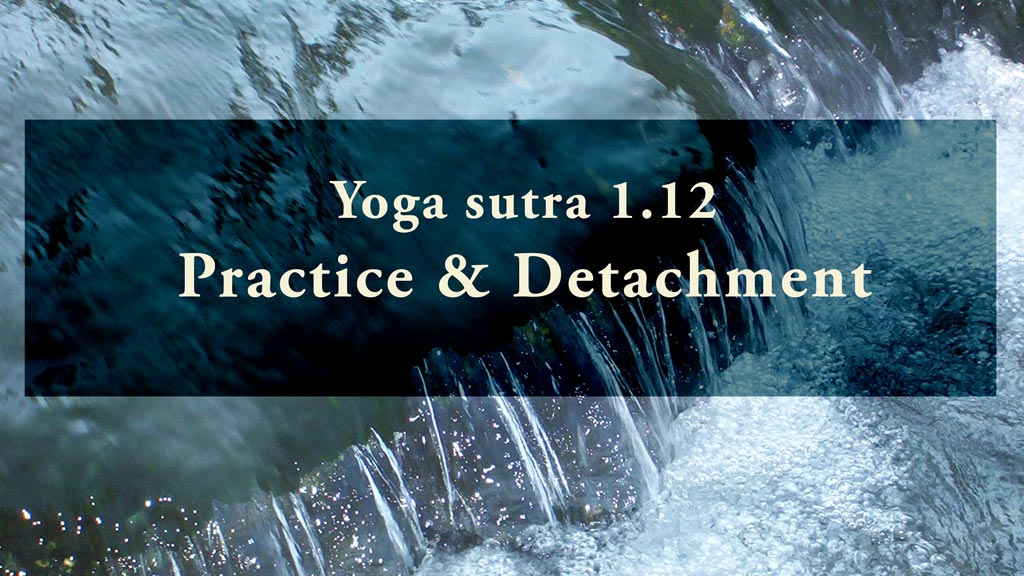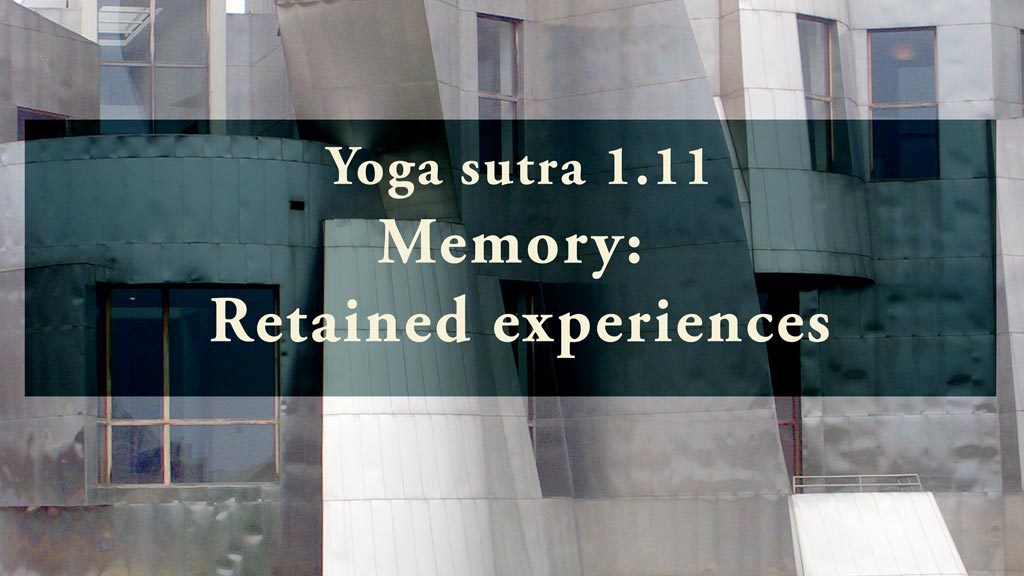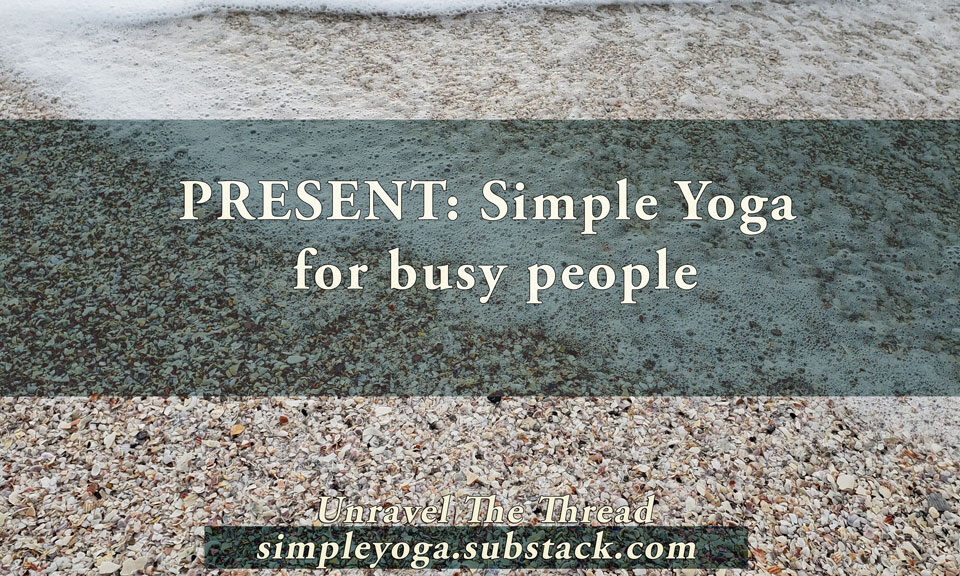
1.10 Sleep
May 4, 2019
1.12: Practice and Release
July 1, 2019
1.10 Sleep
May 4, 2019
1.12: Practice and Release
July 1, 20191.11 Memory


1.11 Memory (smriti) is retaining experiences.
The last way of being is remembering. Of the many impressions you sense in a single day, the impressions that have a strong emotion attached to them are the ones that will be stored. It is possible that you may know somebody who seems to be living in the past, longing for days long gone and how life used to be. The attitude of an “old” person can be defined as being attached to the past. It is not a matter of chronological age but of attitude. This attachment can result from wanting to retain what is no longer here, or from trying to push away the memory of something that happened before. In either case, this attachment may be so consuming that there may be very little energy left to invest in this moment. Consider also that fixating on your ideas about the future is one way of attaching or reacting to the past, because your predictions are probably based on something that happened before.
In contrast, the attitude of a “young” person could be defined as somebody who recognizes the newness of this moment and responds intelligently and with grace to it. Of course, it is not necessary to think that memories are bad and that you should eliminate them. Memories are part of your personal history. They contribute perspective. Rather than thinking that you should eliminate all of your memories, consider your relationships to your memories. Do you hold your memories – or do they have a hold on you? Is it possible to have a healthy relationship with your memories? What would that mean for you?
One way of exploring this idea is to discover the emotional charge of a memory. Since emotion is the active element in creating an impression in your memory, you can gain insight by clarifying the emotional imprint left by an event. For instance, find a memory that defines you. Then, focus on the details of the memory like the situation and participants in the original event. Next, shift your attention from the superficial aspects of the memory to its emotional signature. What are the emotions this memory triggers in you? Do the emotions triggered by the memory brighten you internally, or do they dampen your physical, mental and emotional energy? When you feel these emotions do you react by pushing the memory away or by holding on to it strongly? Can you choose to just feel the sensations and emotions flow through you until they dissipate instead of trapping the emotions inside of you? When you practice this technique, can you notice similarities in the emotional imprint of your deeply held memories? Are those similarities indicative of memories with an unresolved emotional charge? When you reflect on those memories, do they offer you insight into some of your present attitudes, tendencies and choices? Can you make peace with your memories and your past by releasing the emotional charge of each memory (regardless of it being positive or negative)? Can it help to recognize that previous events have contributed to shape your current perspectives and circumstances? Can you acknowledge that at every single point in your past you probably did what you thought was the best choice, even though you may not do the same thing again?
As usual, you can explore with curiosity the direct experience of chanting this sutra.
You can choose to chant the traditional version:
anubhūtaviṣayāsaṃpramoṣaḥ smṛtiḥ
अनुभूतविषयासंप्रमोषः स्मृतिः ॥११॥
or, you can chant each word individually:
- anubhūta
- viṣaya
- asaṃpramoṣaḥ
- smṛtiḥ
Unravel the thread is now available as a book!
If you find Simple-Yoga.org and Unravel the thread useful, consider supporting my labor with a donation, you may also donate using PayPal or Venmo. Thank you!
